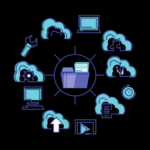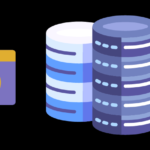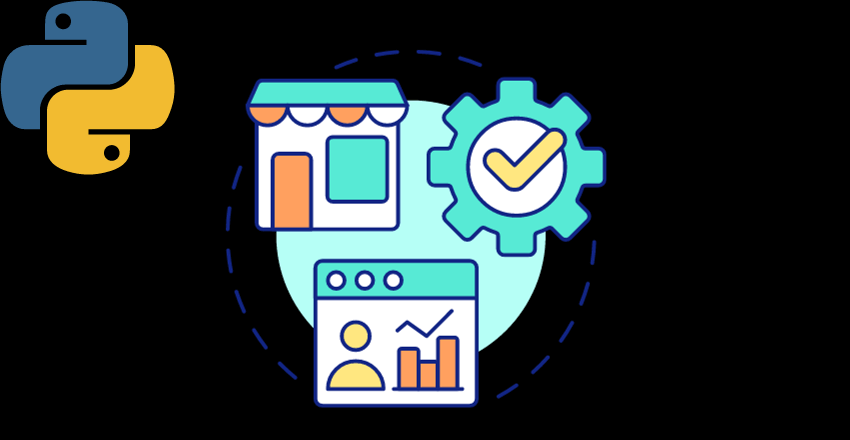 Python is a versatile programming language that has gained a significant presence in the retail industry. From inventory management to sales forecasting and customer analytics, Python offers a wide range of applications for building efficient retail solutions.
Python is a versatile programming language that has gained a significant presence in the retail industry. From inventory management to sales forecasting and customer analytics, Python offers a wide range of applications for building efficient retail solutions.
Retailers are leveraging Python’s capabilities to create expert solutions that are scalable, flexible, and cost-effective.
Building retail solutions with Python ensures that retailers can keep up with the rapidly evolving retail landscape. Python’s ease of integration and readability further make it a preferred choice for businesses.
Python’s Versatility in Retail Solutions
Python’s versatility in the retail industry provides numerous opportunities to build effective and efficient solutions. Whether it’s inventory management, sales forecasting, customer analytics, or any other retail-related task, Python is a go-to language for developers looking to create scalable and flexible retail solutions.
One of the key strengths of Python is its ease of integration with other technologies. Python can seamlessly interface with other popular retail software such as SAP, Oracle, and IBM, making it a preferred language among retailers who require smooth integration with their existing technology stack.
Python’s readability is another factor that sets it apart from other languages. The simple and concise syntax of Python allows developers to write code that is easy to understand, reducing the likelihood of errors and making it faster to spot them when they occur.
Moreover, Python’s extensive library of modules and frameworks makes it possible to quickly build and deploy complex retail solutions. Some popular frameworks that are widely used in the retail industry include Django, Flask, Pyramid, and Bottle. These frameworks provide pre-built components that can be easily integrated into a Python retail solution, saving developers time and resources.
Python Frameworks for Retail Solutions
| Framework | Features | Use Case in Retail Industry |
|---|---|---|
| Django | Full-stack framework with an admin interface, ORM, and templating system | Building e-commerce websites and inventory management systems |
| Flask | Lightweight and customizable framework with simple routing and templating | Creating web-based tools for customer analytics and sales reporting |
When comparing Python to other languages commonly used in retail solutions, Python stands out for its efficiency and community support. For example, Java and C# may offer more robust features for large-scale enterprise applications, but Python’s simplicity and productivity make it an ideal language for small to mid-sized retailers.
Here are some code examples that illustrate the difference between Python and Java:
Python code:
for i in range(10): print(i)Java code:
for(int i = 0; i < 10; i++) { System.out.println(i); }
In addition, Python’s massive user community ensures that there is a vast pool of resources, documentation, and support available to developers building retail solutions with Python.
Overall, Python’s versatility makes it a powerful tool for building retail solutions that are tailored to a business’s specific needs. From integrating with existing technology stacks to providing pre-built components, Python’s strengths make it an ideal language for retailers looking to develop scalable and efficient solutions.
Key Benefits of Using Python in Retail

The use of Python in the retail industry offers a wide range of benefits that can help businesses achieve success. Here are some of the key advantages of using Python for retail solutions:
| Benefit | Description |
|---|---|
| Scalability | Python is highly scalable, allowing retailers to handle large volumes of data and traffic as their businesses grow. |
| Flexibility | Python is a versatile language that can be used in various retail applications, from inventory management to customer analytics. |
| Ease of integration | Python can be seamlessly integrated with other technologies and systems, making it an ideal choice for retailers looking to improve their operations. |
| Cost-effectiveness | Python is an open-source language, which means it is free to use and modify. This makes it a cost-effective solution for retailers looking to develop innovative solutions without breaking the bank. |
Furthermore, Python’s vast community of developers and extensive libraries make it easy for retailers to find solutions to their specific needs and challenges. This means that retailers can save time and resources by leveraging the work that has already been done by other Python developers.
Overall, using Python in the retail industry can provide numerous benefits to businesses, including enhanced scalability, flexibility, ease of integration, cost-effectiveness, and access to a supportive community of developers.
Popular Python Frameworks for Retail Solutions
Python offers several frameworks for building retail solutions, each with its own strengths and use cases. Here we compare and contrast two popular frameworks: Django and Flask.
Django
Django is a full-stack framework that provides a complete set of tools for designing and deploying web applications. It is known for its robustness, scalability, and security measures. Django comes with built-in features that simplify the development process, such as an ORM for database access and a templating engine for rendering dynamic content. It also supports third-party libraries and plugins, enabling developers to extend its capabilities easily.
Here’s an example of how Django can be used to build a retail solution:
# models.py class Product(models.Model): name = models.CharField(max_length=50) description = models.TextField() price = models.DecimalField(max_digits=5, decimal_places=2) inventory = models.IntegerField() created_at = models.DateTimeField(auto_now_add=True) updated_at = models.DateTimeField(auto_now=True) # views.py def product_list(request): products = Product.objects.all() return render(request, 'product_list.html', {'products': products}) # templates/product_list.html <h1>Product List</h1> <ul> {% for product in products %} <li>{{ product.name }} - ${{ product.price }}</li> {% endfor %} </ul>
In this example, we define a Product model that represents a product in our inventory. We then create a product_list view that retrieves all products from the database and renders them on a webpage using a template.
Flask
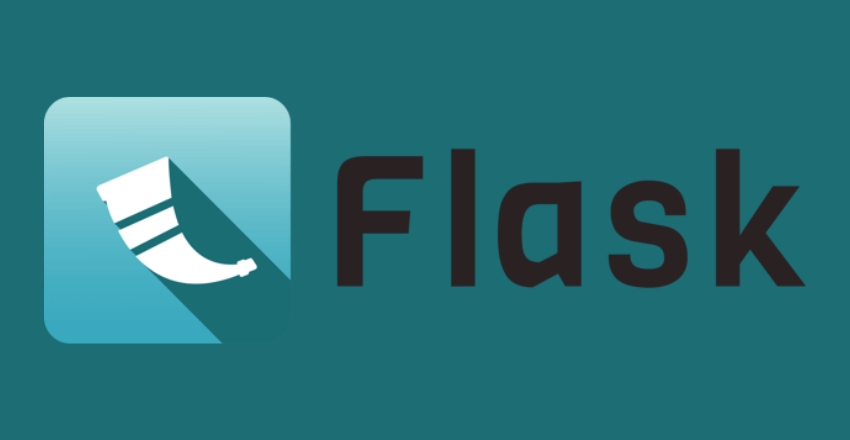
Flask is a lightweight, minimalist framework that favors simplicity and flexibility. It allows developers to create web applications quickly without imposing too many constraints. Flask is often used for prototyping, small projects, or APIs. It follows the “micro” philosophy, meaning it only provides essential features and leaves the rest to third-party libraries or plugins.
Here’s an example of how Flask can be used to build a retail solution:
from flask import Flask, jsonify app = Flask(__name__) @app.route('/products') def get_products(): products = {'products': [ {'name': 'Product A', 'price': 10.0}, {'name': 'Product B', 'price': 20.0}, {'name': 'Product C', 'price': 30.0}, ]} return jsonify(products)
In this example, we define a Flask application and create a get_products route that returns a JSON object containing a list of products. This approach requires less setup compared to Django and can be useful for simple applications or APIs.
Overall, both Django and Flask offer powerful features and can be used to build effective retail solutions. The choice depends on the specific needs and goals of the project, as well as the developer’s skillset and preferences.
Python vs Other Languages for Retail Solutions
Python is not the only programming language used in the retail industry. Other popular languages such as Java and C# also have their place. However, Python offers several advantages that make it a preferred choice for many retailers.
One significant advantage of Python is its readability. Python’s syntax is easy to understand and follow, making it ideal for developers of all skill levels. In comparison, languages like Java and C# have more complex syntax that can be challenging for beginners to grasp.
Python is also highly efficient. Its interpreted nature means that developers can write and test code quickly, leading to faster development cycles. Additionally, Python’s extensive library of modules and packages allows developers to access a vast array of pre-built tools, aiding in the development process.
In terms of community support, Python has a large and active community that contributes to its ongoing development. This community provides a wealth of resources, including documentation, tutorials, and support forums, making it easy for developers to learn and grow.
To demonstrate the readability and efficiency of Python, consider the following example. Here, we compare the syntax of Java and Python for a simple function that calculates the sum of two numbers:
| Java | Python |
|---|---|
| public int sum(int a, int b) { return a + b; } | def sum(a, b): return a + b |
The Python version of this function is much shorter and more concise, making it easier to read and understand.
While Python is not the only programming language suitable for building retail solutions, its readability, efficiency, and community support make it a compelling choice for many retailers.
Best Practices for Developing Python Retail Solutions

Python’s versatility and ease of use have made it a popular choice for building retail solutions. To ensure the development of efficient and robust solutions, it is important to follow best practices in Python development.
The following practices will help create high-quality Python retail solutions:
- Modularize your code: Breaking down your code into smaller, reusable modules makes it easier to maintain and test your codebase. By creating smaller functions and classes, you can minimize complexity and improve flexibility.
- Optimize your code: Python provides a number of options to optimize code performance. Utilize tools like profiling to identify bottlenecks in your code and optimize it accordingly. This will help to ensure that your code runs efficiently and uses resources optimally.
- Ensure security: Retail solutions often handle sensitive customer information, making it crucial to prioritize security. Use secure coding practices, such as input validation and proper authorization, to prevent unauthorized access or data breaches.
- Manage your data: Efficient data management is critical for retail solutions. Choose appropriate data structures and algorithms to ensure that your data is organized and easily accessible. Use tools like databases and caching solutions to optimize performance and data storage.
Code Optimization Example
Consider the following example of optimizing code for a retail solution:
Before optimization:
for i in range(len(items)): total += item[i].price * item[i].quantityAfter optimization:
for item in items: total += item.price * item.quantity
By removing the unnecessary use of the len() function and indexing, the code is simplified and runs more efficiently.
Security Consideration Example
One important security consideration for retail solutions is to prevent SQL injection. Consider the following example:
Before security consideration:
query = "SELECT * FROM user WHERE username='" + username + "' AND password='" + password + "';"After security consideration:
query = "SELECT * FROM user WHERE username=%s AND password=%s;" cursor.execute(query, (username, password))
By using parameterized queries and passing the username and password as parameters, the code is protected against SQL injection attacks.
By following best practices for developing Python retail solutions, you can ensure that your solutions are efficient, secure, and scalable.
Overcoming Challenges in Python Retail Solutions
While Python is a powerful tool for building retail solutions, there are challenges that businesses may encounter during implementation. These include:
- Data management issues, such as data quality and security concerns.
- Integration with legacy systems and technologies.
- Scaling and performance optimization to handle large volumes of data.
- Managing complexity and maintaining code quality as solutions grow and evolve.
Fortunately, there are strategies and best practices that businesses can adopt to overcome these challenges and ensure successful implementation of Python retail solutions.
Strategies for Overcoming Challenges
To address data management challenges, it is essential to establish proper data governance and management practices. This includes defining data quality standards, ensuring data security measures are in place, and selecting suitable data storage technologies, such as databases or data lakes.
Integration challenges can be addressed by adopting a modular design approach to software development. This allows for the integration of new modules or features without disrupting existing ones. Additionally, using APIs and microservices can facilitate integration with legacy technologies.
Scaling and performance optimization can be achieved through the use of appropriate technologies and architectures. This includes deploying solutions on cloud platforms that can scale up or down as needed, using distributed architectures and data processing frameworks such as Apache Spark or Dask, and optimizing code for performance using techniques such as caching and concurrency.
To manage complexity and ensure code quality, it is essential to follow best practices such as utilizing version control systems, adopting coding standards and guidelines, and implementing automated testing and quality assurance processes.
Conclusion: Embracing Python for Retail Success
Python is a powerful tool for building effective and efficient retail solutions. By leveraging Python’s versatility and capabilities, retailers can achieve scalability, flexibility, ease of integration, and cost-effectiveness in their business operations.
Python has a wide range of applications in the retail industry, including inventory management, sales forecasting, customer analytics, and more. Its simple and readable syntax, as well as its large and active community, make it a preferred choice for retailers.
When comparing Python with other programming languages commonly used in the retail industry, such as Java or C#, Python stands out for its efficient and concise code, which leads to faster development and easier maintenance.
As the retail industry continues to evolve, emerging technologies such as machine learning, artificial intelligence, and IoT are reshaping the landscape. Python is continuously innovating to keep up with these trends and provide retailers with the necessary tools to stay competitive.
While implementing Python solutions in the retail industry may come with challenges, such as data integration and cybersecurity risks, retailers can overcome these challenges by following best practices and seeking expert guidance.
Retailers who embrace Python as a strategic advantage will be better positioned to succeed in today’s competitive retail landscape. With its versatility, efficiency, and innovative capabilities, Python is a valuable asset in building successful retail solutions.
FAQ

Q: Can Python be used to build retail solutions?
A: Yes, Python is a versatile programming language that can be effectively used to build retail solutions.
Q: What are some examples of retail solutions that can be built with Python?
A: Python can be used for various applications in the retail industry, including inventory management, sales forecasting, customer analytics, and more.
Q: What are the benefits of using Python in retail?
A: Python offers advantages such as scalability, flexibility, ease of integration, and cost-effectiveness for retail solutions.
Q: Are there any popular Python frameworks for retail solutions?
A: Yes, popular Python frameworks for retail solutions include Django and Flask, each with their own features, strengths, and use cases.
Q: How does Python compare to other programming languages for retail solutions?
A: Python excels in terms of readability, efficiency, and community support compared to other languages such as Java or C#. It also offers code examples to illustrate the differences.
Q: What are some best practices for developing Python retail solutions?
A: Best practices for developing Python retail solutions include modular design, code optimization, security considerations, and efficient data management.
Q: What challenges are faced when implementing Python retail solutions?
A: Implementing Python solutions in the retail industry may face challenges such as integration issues or scalability concerns. However, there are practical strategies and solutions available to overcome these challenges.
Q: Why should retailers embrace Python for retail success?
A: Python offers powerful capabilities to build successful retail solutions, and retailers can leverage its advantages to gain a competitive edge in the retail landscape.
Lydia is a seasoned technical author, well-versed in the intricacies of software development and a dedicated practitioner of Python. With a career spanning 16 years, Lydia has made significant contributions as a programmer and scrum master at renowned companies such as Thompsons, Deloit, and The GAP, where they have been instrumental in delivering successful projects.
A proud alumnus of Duke University, Lydia pursued a degree in Computer Science, solidifying their academic foundation. At Duke, they gained a comprehensive understanding of computer systems, algorithms, and programming languages, which paved the way for their career in the ever-evolving field of software development.
As a technical author, Lydia remains committed to fostering knowledge sharing and promoting the growth of the computer science community. Their dedication to Python development, coupled with their expertise as a programmer and scrum master, positions them as a trusted source of guidance and insight. Through their publications and engagements, Lydia continues to inspire and empower fellow technologists, leaving an indelible mark on the world of scientific computer science.
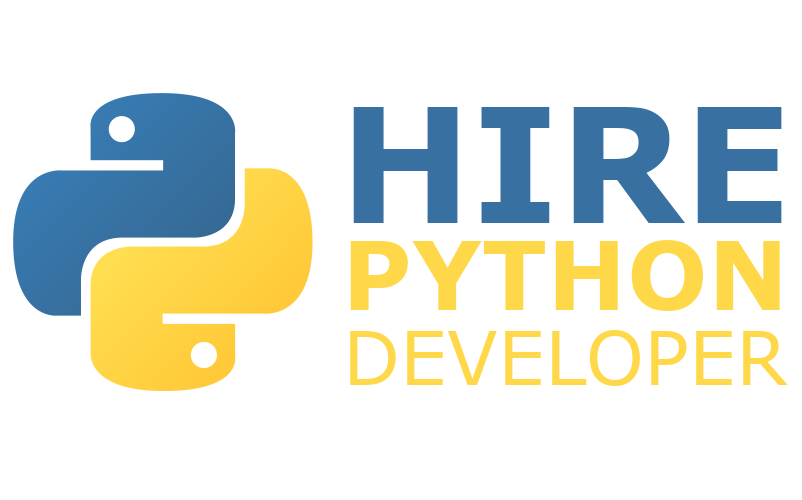

![15 Most Contributed Python Projects on GitHub [Stats]](https://hirepythondeveloper.com/wp-content/uploads/2024/03/15-Most-Contributed-Python-Projects-on-GitHub-Stats-1-150x150.png)

